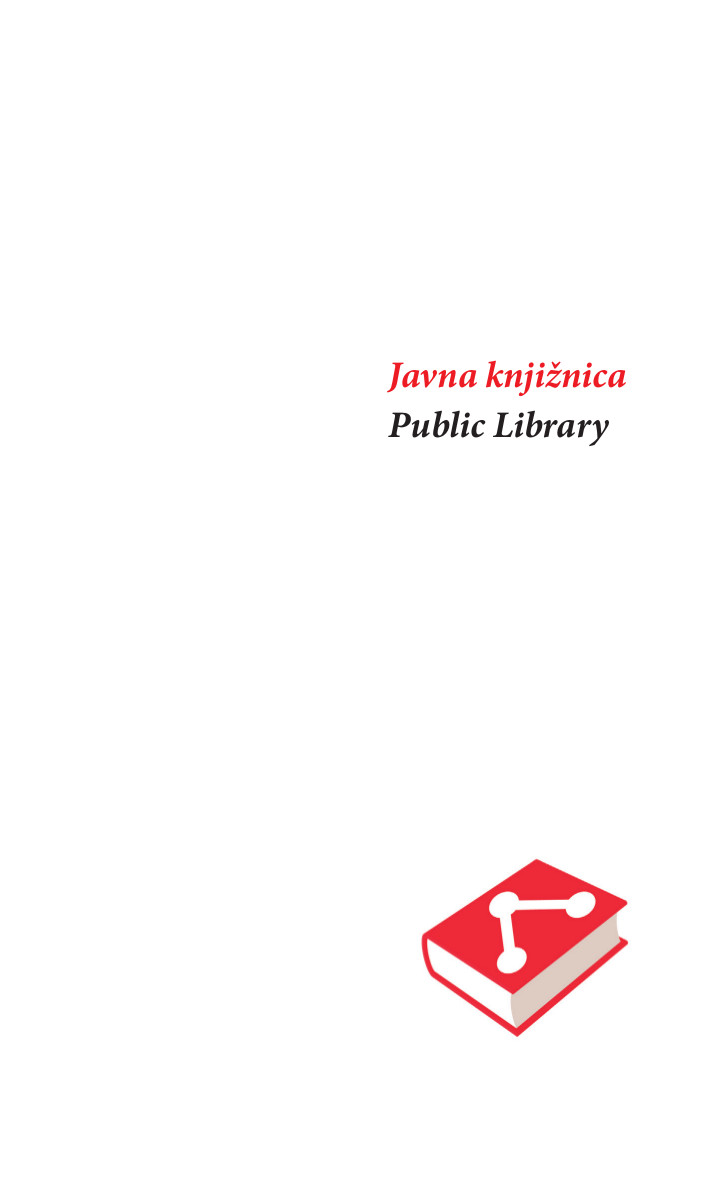Tomislav Medak, Marcell Mars, WHW (eds.): Public Library / Javna knjižnica (2015) [English/Croatian]
Filed under book | Tags: · book, internet, knowledge, library, metadata, web

A collection of four essays on the institution of the public library and the relevance of today’s online text collections. Published on the occasion of an exhibition and conference held in Zagreb, Croatia, in May and June 2015.
“The public library is:
* free access to books for every member of society;
* library catalog;
* librarian.
With books ready to be shared, meticulously cataloged, everyone is a librarian. When everyone is librarian, library is everywhere.”
Texts by McKenzie Wark, Tomislav Medak, Marcell Mars, Manar Zarroug, and Paul Otlet.
Edited by Tomislav Medak, Marcell Mars, and What, How & for Whom (WHW)
Publisher WHW & Multimedia Institute, Zagreb, May 2015
Creative Commons BY-SA 4.0 License
ISBN 9789535595137
144 pages
via Memory of the World
Johanna Drucker: SpecLab: Digital Aesthetics and Projects in Speculative Computing (2009)
Filed under book | Tags: · aesthetics, computing, digital humanities, metadata

“Nearly a decade ago, Johanna Drucker cofounded the University of Virginia’s SpecLab, a digital humanities laboratory dedicated to risky projects with serious aims. In SpecLab she explores the implications of these radical efforts to use critical practices and aesthetic principles against the authority of technology based on analytic models of knowledge.
Inspired by the imaginative frontiers of graphic arts and experimental literature and the technical possibilities of computation and information management, the projects Drucker engages range from Subjective Meteorology to Artists’ Books Online to the as yet unrealized ’Patacritical Demon, an interactive tool for exposing the structures that underlie our interpretations of text. Illuminating the kind of future such experiments could enable, SpecLab functions as more than a set of case studies at the intersection of computers and humanistic inquiry. It also exemplifies Drucker’s contention that humanists must play a role in designing models of knowledge for the digital age—models that will determine how our culture will function in years to come.”
Publisher University of Chicago Press, 2009
ISBN 0226165086, 9780226165080
264 pages
PDF (updated on 2021-2-4)
Comments (3)
